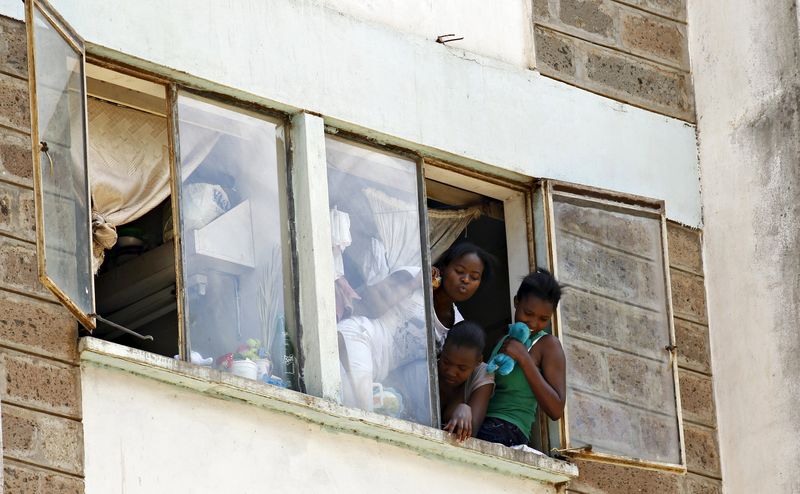By Duncan Miriri
NAIROBI (Reuters) - A Kenyan student died and more than 100 others were injured as they fled after a electrical explosion triggered fears that their campus was being attacked before dawn on Sunday, officials said.
Students jumped from windows at their University of Nairobi residence halls or rushed out in a stampede that underlined growing tensions just over a week after Islamist gunmen stormed another university campus, killing 148 people.
"I could see the students jumping and one of them landed on his head," said third-year student Felix Muriuki. Others said there were three loud blasts, plunging the dormitory into darkness, which heightened the panic among the students.
"We thought it was another al Shabaab attack," said Eddy Capella, a first-year student.
The dead student was among others who had tried to jump to safety at the Kikuyu campus, university vice chancellor Peter Mbithi told Reuters.
"We have lost one male student who fell from fifth floor," Mbithi said outside the emergency section of the country's main public hospital, Kenyatta National.
Kenya Power, the country's main electricity distributor, said the explosion was caused by overloaded underground cable. Initial witness accounts had said a transformer exploded.
Kikuyu students called on the government to do more to secure all universities. "I'm not feeling 100 percent safe on campus but I will continue with my studies," Muriuki said.
Witnesses said the explosion occurred at about 4.30 am (0130 GMT), setting off terrified screams from the women's wing of a dormitory. The panic spread to the men's wing, where students woke up and scrambled to get out.
Students said the incident evoked memories of the April 2 attack on Garissa University College, about 200 km (120 miles) from the Somali border. Somalia's al Qaeda-aligned group al Shabaab claimed responsibility for that raid, which also came before dawn.
The tragedy befell Kenya while it was still grieving over the students killed in Garissa, with funerals taking place around the country.
Al Shabaab has killed more than 400 people on Kenyan soil in the last two years, including 67 during a siege at Nairobi's Westgate mall in 2013, damaging tourism and inward investment.
Kenya responded to the latest attack with airstrikes on al Shabaab targets in Somalia and closure of informal financial firms suspected of involvement in the funding of the militants.

It has also said the U.N. refugee agency should relocate hundreds of thousands of Somali refugees sheltering in the Dadaab camp in the remote northeastern region.